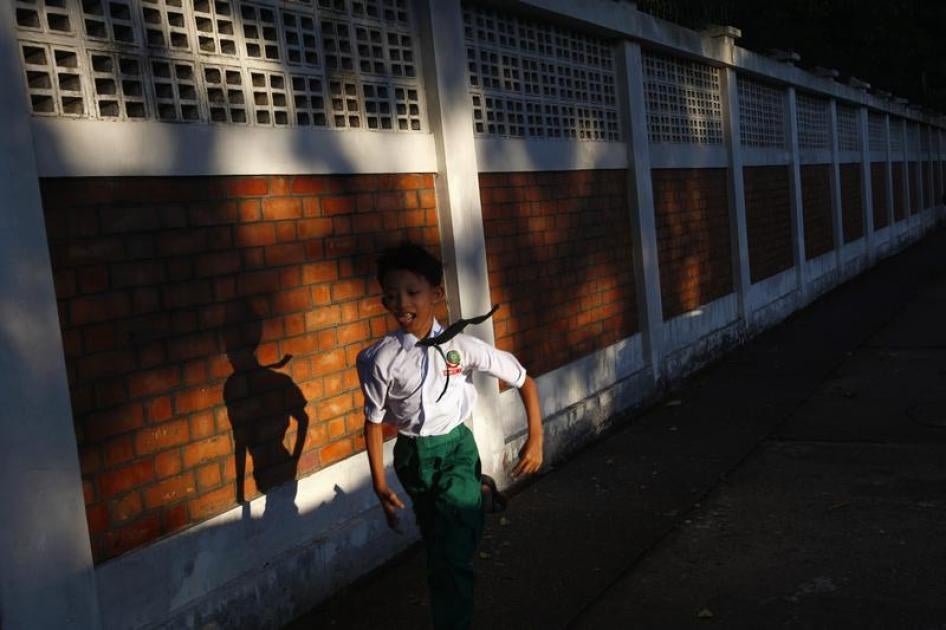Last week, Burma became the 107th country to sign the Paris Principles on Children Associated with Armed Forces or Armed Groups – a set of guidelines to protect children from being recruited as soldiers. As a country where the unlawful recruitment of children into the government armed forces and opposition armed groups still occurs, this was an important step.
While the government seems to be in an endorsing mood, there’s another document they should sign – the
Safe Schools Declaration.
The declaration is a non-binding, political commitment to better protect students, teachers, schools, and universities during armed conflict. It commits countries to take several concrete steps, such as improving the reporting of attacks on schools; investigating and prosecuting alleged war crimes involving schools; restoring access to education more quickly following attacks; and
refraining from using schools for military purposes.
Civilians and civilian structures are at risk in the many conflict zones that exist predominantly in the ethnic minority areas of Burma. Schools are no exception. Children have even been
injured at school by military clashes. When schools are damaged or destroyed, or used as military bases, it dims the future for local children.
The Burmese government and a number of ethnic armed groups already recognize the importance of protecting schools and education, especially in armed conflict. The 2015
Nationwide Ceasefire Agreement (NCA) calls on signatories to avoid the use of schools as bases, avoid restrictions on the right to education, and avoid actions that would lead to the destruction of schools. Yet, reports of attacks on schools in Burma continue. A greater commitment by all sides is needed.
Endorsing the
Safe Schools Declaration would be a step in the right direction. The government should act now, and then solidify its commitment by attending the
international Safe Schools conference that will
take place in Argentina in late March.
But more than endorsement is needed. The country’s development and education are intertwined. After decades of repressive military rule, Burma’s children are the best hope for an inclusive, thriving democracy. Ensuring access to education – in a safe, secure environment – is critical to that brighter future.







